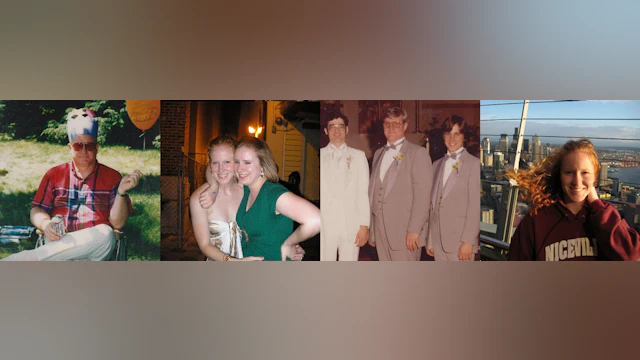Jun. 18, 2019 - This year, I’m participating in AFSP’s Out of the Darkness Overnight Walk in Boston on June 22. I’m walking to spread awareness and hope for a world without suicide.
I was only 13 years old, but still remember the call in the middle of the night, informing us my uncle had died by suicide. With so little life experience, I was confused and struggled to understand why someone would end their own life. My confusion continued as I watched my mother deal with her own grief, which floated between sadness and anger.
We'd lost my grandmother to cancer a few years earlier, but the grief my family experienced following my uncle’s death felt entirely different. He was gone suddenly, and it left us all shocked. We hadn’t known the battle he was fighting, because we didn’t understand depression.
Life continued to move forward. After college, I enrolled in graduate school and made great friends. My friend Kelly was smart and outgoing, wickedly funny and loyal to those who knew her. She was a thoughtful friend, and told the kind of wild stories that left us crying with laughter. She could always make me smile. After we graduated, life put many miles between us, but we kept in touch.
We all had ups and downs in the following years, but Kelly in particular really struggled. She couldn't find a job, and her marriage was crumbling. She shared that she'd been hospitalized after trying to take her own life. My heart froze in my chest as she told me she didn't want to be here anymore. She said that the pain she was feeling hurt intensely, and that she had begun to feel deserted by those she previously thought she could count on.
I stayed on the phone with her for several hours, begging her not to leave and telling her what she meant to me. It was hard to believe my once confident friend could feel so battered by life.
I was worried, but following that phone call, things gradually seemed to improve for Kelly. She'd finally gotten a great job, and found an old friend she could stay with. We spoke often, and she seemed more cheerful, like she was looking ahead to the future.
Three months later, on an otherwise ordinary day, I received a call telling me Kelly had died.
Losing Kelly to suicide felt different than my uncle's death. I had seen this person’s pain up close. Grieving for the friend I had now lost, I felt helpless, knowing that someone close within my grasp could slip away so easily. In the immediate weeks following Kelly’s death, I relied on support from my family and friends, and asked for prayers from my church family as well.
One of Kelly’s friends created a Facebook memorial group, which gave us a space to share fond memories and photos, many from people I didn't know from Kelly's childhood and high school years. The Facebook group is still active, and it always makes me smile to hear new stories about my friend. It helps to have this connection to so many others who miss her.
Simply talking and reminiscing about Kelly has helped me in my healing journey, as I continue to remember the impact she had on my life.
What has helped me the most, and feels like the best way to honor her memory, is my decision not to be silent about her suicide.
Following Kelly’s death in 2013, I found the American Foundation for Suicide Prevention website. It brought me hope and comfort to read the stories of other loss survivors in AFSP’s Lifesavers Blog. I also learned a lot of valuable information about mental health and suicide, and how to be there for others. I couldn’t help Kelly, but supplying myself with this knowledge gave me a sense of purpose. I would now be more prepared to help if I ever noticed someone else struggling, and how I might best connect them to help.
Several years later — thanks to what I had learned — I was able to recognize the warning signs when someone else I cared about was having suicidal thoughts. With an improved understanding of what they were experiencing, I knew how best to get them help. Every day may not be perfect, but they're doing better, and they're still here.
So it is in honor of my uncle, and my friend, and all those who struggle with mental health conditions that I am participating in AFSP’s Out of the Darkness Overnight Walk in Boston.
Knowledge has the power to save lives. Everyone should learn the warning signs for depression and suicide, and what can be done to treat it. By listening, learning and understanding, together we truly can stop suicide.
The 2019 Overnights will take place in San Francisco on June 8, and Boston on June 22. Register today!
For some helpful tips on starting (and continuing) a conversation about mental health with someone close to you, check out our #RealConvo resource guides here.
